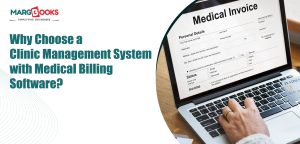Medical billing software is a specialized tool designed to manage and automate the process of submitting and tracking healthcare claims, managing patient accounts, and ensuring healthcare providers are paid for their services. This software integrates with other systems like electronic health records (EHR) and practice management software to streamline administrative tasks, reduce human error, and enhance efficiency.
Here are the core features and benefits of medical billing software:
Key Features of Medical Billing Software
- Claims Management:
• Automatically generate and submit claims to insurance companies, Medicare, Medicaid, or other payers.
• Track the status of claims in real-time.
• Handle rejections and resubmissions effectively. - Coding Support:
• Integrates ICD-10 (International Classification of Diseases) and CPT (Current Procedural Terminology) codes to ensure accurate coding for diagnoses and treatments.
• Helps reduce coding errors, improving the accuracy of claims and avoiding denials. - Patient Billing & Payment Processing:
• Tracks patient balances, billing cycles, and payment history.
• Allows for secure online payments, including credit card and ACH processing.
• Generates patient statements and reminders for outstanding balances. - Insurance Verification:
• Verify patient insurance details to ensure coverage eligibility before providing services.
• Reduce the chances of claim denials by confirming benefits in advance. - Reports & Analytics:
• Generates detailed financial reports, including revenue cycle performance and outstanding payments.
• Tracks KPIs such as claim rejection rates, revenue per visit, and days in accounts receivable.
• Provides insights to optimize billing practices and boost cash flow. - Compliance & Security:
• Ensures that the practice complies with healthcare regulations like HIPAA (Health Insurance Portability and Accountability Act) for patient data security.
• Provides secure access to authorized users and encrypts sensitive data to protect against breaches. - Integration with EHR/EMR:
• Syncs with electronic health records (EHR) or electronic medical records (EMR) systems to automatically import patient data, reducing manual entry errors.
• Enables seamless communication between billing, clinical, and administrative teams. - Multi-user Access & Role Management:
• Supports different roles for users such as billers, coders, and administrative staff.
• Provides customizable access levels and permissions to protect sensitive information. - Patient Scheduling Integration:
• Helps schedule patient appointments and syncs with billing for better financial planning and tracking of charges.
Benefits of Medical Billing Software
- Efficiency: Automation speeds up the billing cycle, reducing the time spent on paperwork, manual data entry, and claim processing.
- Accuracy: Reduces coding and billing errors, leading to fewer claim denials and faster reimbursement.
- Improved Cash Flow: By streamlining claim submissions and payment tracking, practices can improve their cash flow and revenue cycle.
- Regulatory Compliance: Helps practices stay up to date with the latest healthcare billing rules, regulations, and coding standards.
- Cost Savings: Reduces the need for a large billing department by automating processes, which can lower overhead costs.
- Better Patient Experience: Clear, accurate bills and the ability to make online payments improve patient satisfaction.
Marg Books provide Medical Billing Software solutions are widely used by healthcare providers, medical practices, hospitals, and billing services to ensure accurate and timely reimbursement for medical services.




